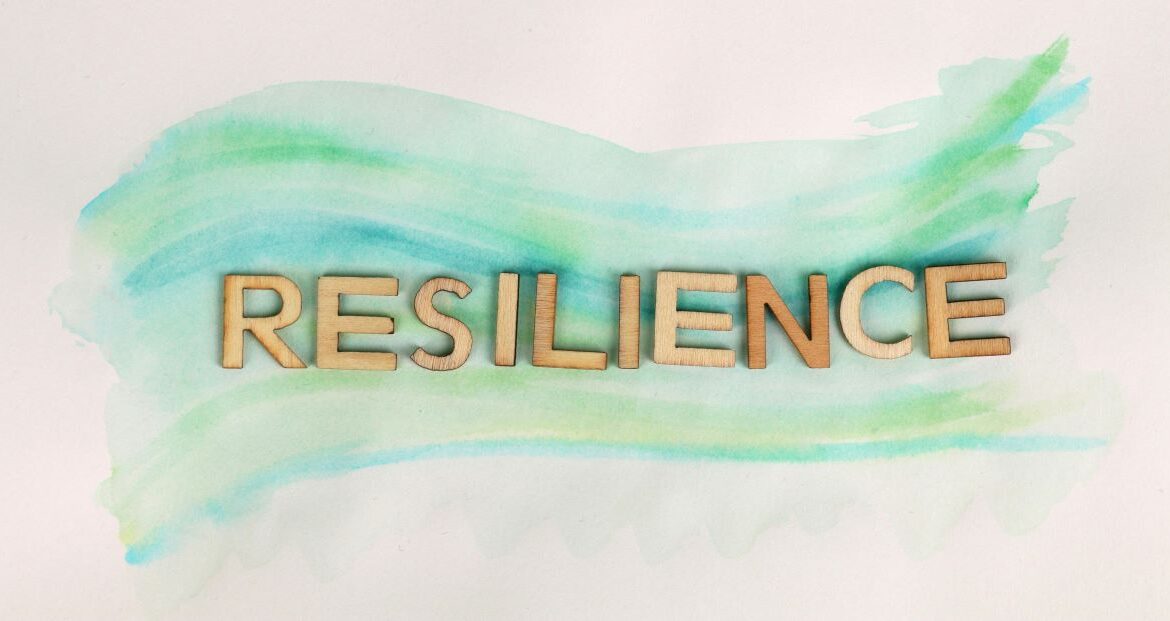Ever noticed how some people can bounce back from setbacks while others struggle with anxiety, stress, and depression? That’s the power of resilience. Life’s challenges can be tough, but resilience helps you manage stress and keep anxiety at bay. Let’s explore practical tips to strengthen your resilience, making it easier to deal with anxiety and depression.
If you’re battling these issues, you’re not alone. Understanding the link between resilience and mental health is a game changer. We’ll guide you through actionable steps to improve your coping skills.
Remember, while these tips can be incredibly helpful, they’re not a substitute for professional therapy. If you need personalized support, reach out to a professional that can guide you along your journey.
Understanding Anxiety, Stress, and Depression
Living with anxiety, stress, and depression can feel overwhelming, but understanding the symptoms of these mental health challenges is the first step toward managing them effectively. Let’s delve into an overview of some of the physical, emotional, and behavioral indicators of anxiety, stress, and depression. Remember this is just a summary and each of these conditions present differently from person to person. Be sure to explore your unique situation with your professional provider.
Spotting Anxiety
Anxiety can manifest in various ways, including physical symptoms like rapid heartbeat, sweating, and trembling, as well as emotional signs such as excessive worry, fear, and irritability. Behaviorally, anxious individuals might avoid certain situations, have difficulty concentrating, or experience panic attacks. For instance, one person might feel tense and constantly on edge, while another may struggle with intrusive thoughts and restlessness.
Spotting Stress
Stress can present itself physically through headaches, muscle tension, and fatigue, and emotionally through feelings of overwhelm, irritability, and anxiety. Short-term stress can lead to quick bursts of energy and focus, but chronic stress can result in burnout, insomnia, and a weakened immune system. Recognizing the differences between short-term stress from deadlines and chronic stress from ongoing work pressures is helpful for effective stress management.
Spotting Depression
Depression is characterized by persistent feelings of sadness, hopelessness, and emptiness, often accompanied by a loss of interest in previously enjoyed activities. Changes in appetite, sleep disturbances, and low energy levels are common indicators of depression. Depressive disorders can vary in severity, from mild feelings of melancholy to major depressive episodes that significantly impact daily functioning. If you recognize these symptoms in yourself or a loved one, it’s essential to seek support.
Remember, you are not alone in facing anxiety, stress, and depression. Reach out to your professional provider for guidance. Your mental well-being matters, and taking proactive steps towards managing these challenges can lead to a brighter, healthier future.

The Role of Resilience in Mental Health
Resilience plays a crucial role in how individuals navigate the challenges of anxiety, stress, and depression. By developing resilience skills and fostering a mindset of strength and adaptability, one can effectively manage and overcome the hurdles posed by these mental health conditions.
Building Resilience Skills
Practical strategies for building resilience are key in fortifying your mental well-being. Through fostering positive thinking, you can reframe negative situations and find silver linings even in the darkest of times. Maintaining social connections provides a vital support system during tough periods, enabling you to share your feelings and seek comfort from loved ones. Engaging in self-care practices, such as mindfulness, exercise, and hobbies, nurtures your emotional resilience and equips you with coping mechanisms for stressful situations.
Real-life examples of resilience in action can be seen in individuals who have faced adversity and emerged stronger. From people who have overcome trauma to those who have navigated hardships, resilience shines as a beacon of hope and empowerment in the face of mental health struggles.
Resilience as a Buffer Against Anxiety and Depression
A resilient mindset acts as a buffer against the insidious nature of anxiety and depression. By cultivating resilience, individuals develop a capacity to bounce back from setbacks and challenges, reducing the impact of stressors on their mental health. This ability to adapt and recover not only safeguards against the onset of anxiety and depression but also fosters a greater sense of well-being and emotional balance.
Embracing resilience can offer insights into how challenges can be transformed into opportunities for growth and self-discovery. By viewing setbacks as temporary obstacles rather than insurmountable barriers, individuals with resilience can navigate the complexities of anxiety and depression with resilience and courage.
If you find yourself struggling with anxiety, stress, or depression, remember that cultivating resilience is a powerful tool in your mental health toolkit. Contact your professional provider for support and guidance in developing resilience skills and coping strategies tailored to your unique needs. Let resilience be your ally in the journey towards greater mental well-being.

Practical Coping Mechanisms for Stress, Anxiety, and Depression
Navigating through the challenges of anxiety and depression can be overwhelming, but incorporating practical coping mechanisms into your daily routine can make a significant difference in managing these conditions effectively. Here are some simple yet powerful tools. Remember, these tools are not a substitute for professional support and the guidance of a professional can help you to decide whether to implement these tools or other strategies in effective ways tailored for your unique situation.
Mindfulness and Stress Reduction Techniques
Introducing mindfulness meditation into your daily life can be a game-changer in combating anxiety and depression. Mindfulness meditation involves focusing on the present moment without judgment, which can help calm your mind and reduce stress levels significantly.
Try these mindfulness exercises to alleviate anxiety and stress:
Diaphragmatic Breathing: Take slow, deep breaths, focusing on your diaphragm expanding and contracting. This technique can help calm your nervous system and reduce anxiety.
Body Scan Meditation: Close your eyes and slowly scan your body from head to toe, noticing any tension or discomfort. This practice can help you release physical and emotional stress.
Mindful Walking: Take a leisurely walk outdoors, focusing on each step and the sensations in your body. Engaging in mindful walking can help ground you in the present moment and alleviate racing thoughts.

Healthy Lifestyle Habits for Mental Well-being
Maintaining a healthy lifestyle is essential for promoting mental well-being and resilience against anxiety and depression. Incorporating the following habits can significantly impact your emotional health positively:
Tips for fostering mental well-being through lifestyle choices:
Balanced Diet: Fuel your body with nutritious foods rich in vitamins, minerals, and antioxidants. A balanced diet can support your mood regulation and overall mental health.
Regular Movement & Exercise: Physical activity releases endorphins, which are natural mood lifters. Engage in regular movement and exercise, whether it’s a brisk walk, yoga session, or dance workout, to boost your mood and reduce symptoms of anxiety and depression.
Sufficient Sleep: Prioritize getting enough quality sleep each night to support your mental and emotional resilience. Poor sleep can exacerbate anxiety and depression symptoms, so establish a bedtime routine and create a restful sleep environment.
Incorporating these practical coping mechanisms into your daily routine can help you better manage anxiety and depression. Remember, reaching out for professional support, such as therapy, can also be a valuable resource in your journey towards improved mental well-being.
Resilience and mental health management are closely linked, with each influencing the other in significant ways. By building resilience, we equip ourselves with the tools and mindset needed to manage anxiety more effectively. Embracing resilience not only helps us bounce back from adversity but also enables us to thrive in the face of life’s challenges. Start today by implementing small changes that strengthen your resilience, and watch as your ability to manage your mental health improves.
Building resilience is a journey, and every step you take towards it is a step towards a healthier, more balanced life. Remember, it’s not about being immune to stress and anxiety but about developing the strength to face and overcome them. While this approach is not a substitute for therapy, it provides practical tips to explore and discuss with your therapist.
Consulting with a therapist can help you fine-tune these strategies for long-term mental health management.
Start Your Journey to Mental Wellness. Schedule Your Consultation and Take the First Step Toward Healing. Call: 856-780-6293

J. Oni Dakhari PsyD
ABOUT THE AUTHOR:
J. Oni Dakhari, PsyD, is not only a clinical psychologist but also loves languages, is an avid traveler, and finds boundless excitement in the pursuit of knowledge and helping others. (NJ LIC# 4481)
Health Information Disclaimer: Attention Required
The information provided within this post and throughout this site, as well as any references or links, should never be regarded as a substitute for personalized medical advice from your doctor or another qualified clinician. The content of this blog, including any references, resources, links, or shared knowledge, is intended for informational purposes only. None of the content should be considered a replacement for professional medical advice, diagnosis, intervention, or treatment. Any actions or decisions resulting from consuming this content, including within the blog or associated resources, are entirely at your discretion.
Neither the blog author nor any associated professionals can be held liable for the consequences of such actions or decisions. Accessing or using any content on this blog, including references, resources, links, or shared knowledge, does not establish a doctor-patient relationship between the author or associated professionals and you.
Furthermore, contacting the blog author or any associated professionals of Dakhari Psychological Services, LLC, to provide personal, medical, or clinical information does not create a doctor-patient relationship. It’s crucial to consult with a qualified healthcare provider for individualized advice regarding your health concerns.



